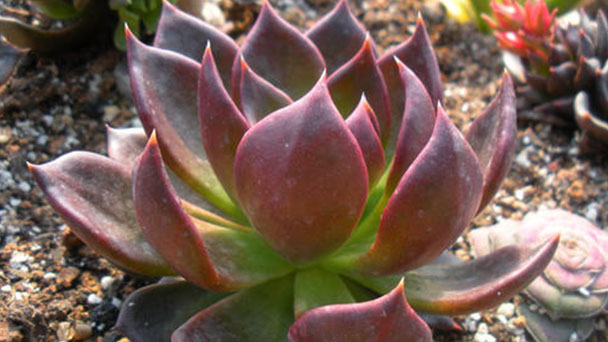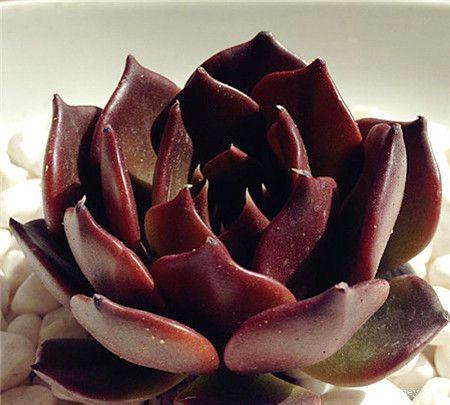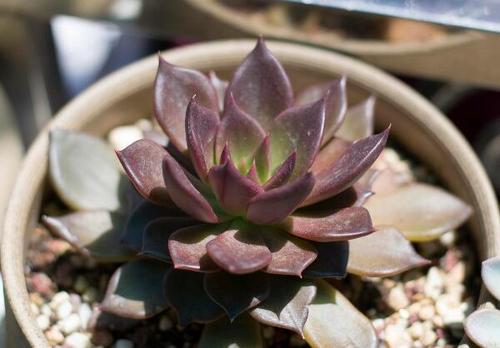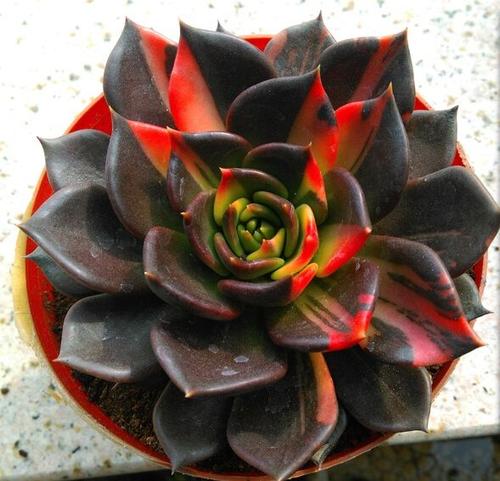How to grow Echeveria Black Prince
Written by Maggie
Aug 31 2021

When breeding Echeveria 'Black Prince', we’d better choose rotting leaves, a mixture of soil and sand soil, and in every 1 ~ 2 years basin, normally put flower pots in the outdoor lighting. In the growing season, it can be in accordance with the principle of water see dry wet. Apply phosphorus liquid compound fertilizer once every other month, and it can grow lush.

1, Soil for Echeveria 'Black Prince'
Reasonable soil is one of the breeding methods and precautions for 'Black Prince'. Sandy soil with good drainage and permeability should be used as the main method to promote root growth. Mixed soil of leaf mould and coarse sandy soil can be selected and the basin can be changed every 1-2 years.
2, light for Echeveria 'Black Prince'
Echeveria "Black Prince is more suitable for growing in a sunny environment, and the leaves will grow more lush in an environment with a large temperature difference between day and night. Generally, the flowerpot is placed in the outdoor light. If the light is insufficient, the leaves of the plant will be sparse, affecting its aesthetic effect.
3, water for Echeveria 'Black Prince'
Echeveria 'Black Prince' succulents contain a lot of water, so proper amounts of watering should be done during the growth process. Too much watering will easily cause the plants to wither, so it is best to loosen the soil after each watering. In the growing season, the watering principle can be followed as dry as wet, and the flowerpot should have holes in the bottom.

4, fertilizer for Echeveria 'Black Prince'
The growth of Echeveria 'Black Prince' does not require much fertilizer. During the growth process, do not apply excessive nitrogen fertilizer. Apply phosphate and potash fertilizer based compound liquid once every other month to grow luxuriant, and add a little water after fertilization to avoid excessive fertilizer burning plants.
5. Notes for propagating Echeveria 'Black Prince'
When propagating Echeveria 'Black Prince' succulent, remember not to let the surrounding temperature be too low. In summer, when the temperature is above 35℃ or below 5℃ in winter, the plant will stop growing. In normal curing, the surrounding air should be kept smooth and the soil should be removed irregularly to promote the normal growth of the root system.

Latest Updated
- Benefits of Bugleweed - 7 Science-backed Health Benefits
- Bugleweed Dangers & Side Effects - Is It Poisonous?
- How to Plant Evergreen Trees - What You Should Know
- When to Plant Evergreens - Grow Guide for Evergreen Trees
- 12 Wonderful Evergreen Shrubs for Your Garden
- 12 Popular Evergreen Plants with Pictures for Beginners
- When And How To Prune A Lilac Bush Like a Pro
- How to Grow & Care for Lilac Vine (Hardenbergia Violacea)
- Japanese Lilac Tree (Syringa Reticulata) Care & Propagation Guide
- Shumard Oak Pros and Cons - What to Know
Popular Articles
- Winter maintenance of Antirrhinum Majus
- How to Grow Terminalia Mantaly Tree
- How to Grow and Care for Crossostephium Chinense
- How to grow Antirrhinum Majus in spring
- Peristeria Elata (Dove Orchid) Profile: Info & Care Guide
- Underwatered Snake Plant (Sansevieria Trifasciata) - Signs And How To Fix
- How to Care for Brazilian Jasmine Plant (Mandevilla Sanderi)
- How to Grow & Care for Graptopetalum Purple Delight in Summer
- Rosa Chinensis (China Rose): Plant Growing & Care Tips
- How to Care for Baby Sun Rose (Aptenia Cordifolia)